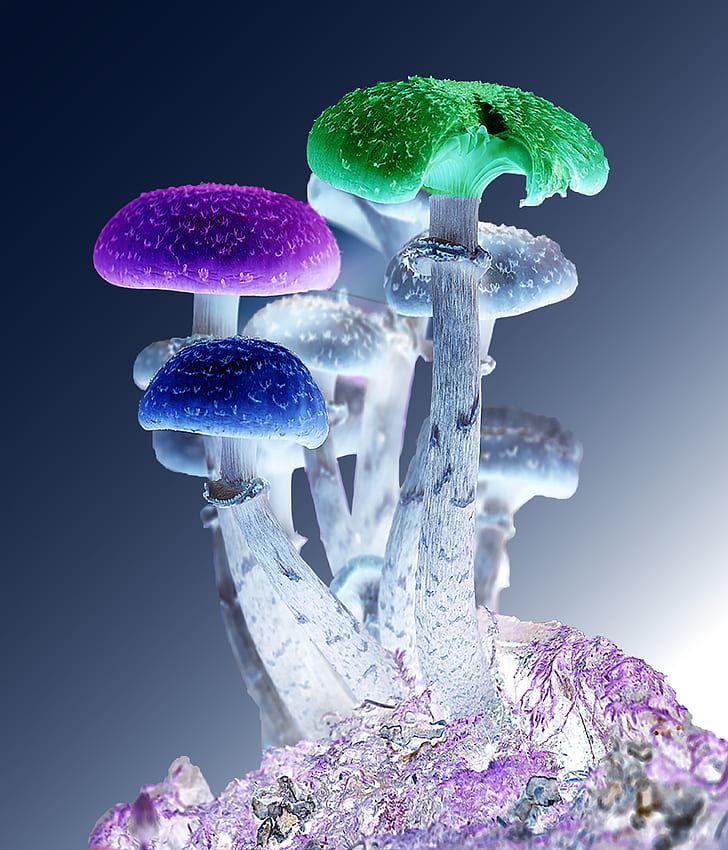Magic Mushrooms and Sexual Healing:
Sexual trauma is a deeply impactful experience that can leave lasting scars on an individual’s psyche and overall wellbeing. Traditional therapeutic approaches often struggle to address the complex layers of trauma and its associated symptoms. However, emerging research suggests that psychedelics, particularly magic mushrooms containing psilocybin, may offer new hope for healing sexual trauma and fostering sexual wellbeing. In this comprehensive guide, we delve into the transformative potential of magic mushrooms in addressing sexual trauma and promoting healing.

Understanding Sexual Trauma:
Sexual trauma encompasses a range of experiences, including sexual abuse, assault, harassment, and intimate partner violence. Regardless of the form it takes, sexual trauma can have profound and long-lasting effects on survivors, impacting their mental, emotional, and physical health.
Impact of Sexual Trauma:
Psychological Effects: Sexual trauma can lead to a host of psychological symptoms, including PTSD, anxiety, depression, dissociation, and low self-esteem.
Emotional Distress: Survivors may experience intense emotional distress, such as shame, guilt, anger, and fear, stemming from their traumatic experiences.
Relationship Challenges: Sexual trauma can strain relationships and hinder intimacy, making it difficult for survivors to trust others and form healthy connections.
Conventional Treatment Approaches:
Talk Therapy: Traditional therapeutic modalities like cognitive behavioral therapy (CBT) and trauma focused therapy are commonly used to address sexual trauma.
Limitations: While talk therapy can be beneficial, it may not always be sufficient in addressing the deep-seated wounds of sexual trauma, particularly in cases of treatment resistant PTSD.
Exploring Psychedelic Therapy:
Psychedelic assisted therapy is garnering attention as a promising alternative for treating various mental health conditions, including trauma related disorders. Magic mushrooms, which contain the psychoactive compound psilocybin, are at the forefront of this emerging field, offering profound therapeutic effects.
How Psychedelics Work:
Mechanism of Action: Psilocybin interacts with serotonin receptors in the brain, leading to alterations in perception, cognition, and consciousness.
Neural Plasticity: Psychedelics promote neural plasticity, facilitating the rewiring of neural circuits and fostering new perspectives and insights.
Therapeutic Potential of Magic Mushrooms:
Psychedelic Therapy: Under the guidance of trained therapists, individuals undergo psychedelic sessions with magic mushrooms, accompanied by preparatory and integration sessions.
Healing Trauma: Magic mushrooms have shown promise in facilitating breakthrough experiences, allowing individuals to confront and process traumatic memories in a safe and supportive environment.
Enhancing Emotional Regulation: Psychedelics can promote emotional regulation and resilience, helping survivors navigate challenging emotions associated with trauma.
Case Studies and Research Findings:
Emerging research and anecdotal reports provide compelling evidence of the therapeutic benefits of magic mushrooms in healing sexual trauma and improving sexual wellbeing.
- Clinical Trials: Studies have demonstrated the efficacy of psychedelic assisted therapy, including significant reductions in PTSD symptoms and improvements in mood and quality of life.
- Personal Testimonials: Survivors of sexual trauma have shared their transformative experiences with magic mushrooms, describing profound healing, increased self-compassion, and restored sense of empowerment.
- Expert Insights: Leading researchers and therapists in the field of psychedelic therapy offer valuable perspectives on the potential applications of magic mushrooms in trauma treatment.
Challenges and Considerations:
While the therapeutic potential of magic mushrooms in healing sexual trauma is promising, several challenges and considerations must be addressed.
- Legal and Regulatory Hurdles: Psychedelic substances are classified as Schedule I controlled substances in many countries, posing legal and regulatory barriers to research and access.
- Safety and Ethical Concerns: Ensuring the safety and ethical conduct of psychedelic assisted therapy requires robust protocols, trained therapists, and comprehensive screening procedures.
- Integration and Aftercare: Integration sessions and ongoing support are crucial for maximizing the therapeutic benefits of psychedelic experiences and promoting long-term healing.
Conclusion:
Healing sexual trauma is a complex and deeply personal journey, but emerging evidence suggests that magic mushrooms and psychedelic assisted therapy may offer a promising path to recovery. By harnessing the transformative power of psychedelics, survivors of sexual trauma can reclaim their agency, cultivate resilience, and embark on a journey of healing and self-discovery. As research continues to unfold, it is essential to prioritize ethical practice, safety, and accessibility to ensure that the potential benefits of magic mushrooms are realized for all those in need.